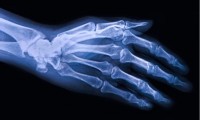-
Study
- Source: drugdu
- 376
- June 8, 2023
-
Biogen cuts PhIII Parkinson’s program over ‘long timeline’
- Source: drugdu
- 390
- June 8, 2023
-
Merck challenges HHS on Medicare drug price negotiations, alleging violations of the Constitution
- Source: drugdu
- 458
- June 8, 2023
-
Eisai hit with ransomware attack, launches investigation into possible data leaks
- Source: drugdu
- 533
- June 8, 2023
-
Amgen’s Lumakras shows promise in phase 3 lung cancer study
- Source: drugdu
- 302
- June 8, 2023
-
Lawmakers worry Medicare Alzheimer’s plan won’t ensure access to new treatments
- Source: drugdu
- 329
- June 8, 2023
-
Abiomed heart pump recall labeled Class I by FDA, no deaths reported
- Source: drugdu
- 292
- June 7, 2023
-
Freiburg researchers gain new insights into metabolic processes in the kidney
- Source: drugdu
- 649
- June 7, 2023
-
AZ notches postmarket win for bleeding reversal agent Andexxa, plans to seek full approval
- Source: drugdu
- 377
- June 7, 2023
-
Johnson & Johnson’s Balversa tops chemotherapy in bladder cancer trial
- Source: drugdu
- 451
- June 7, 2023
your submission has already been received.
OK
Subscribe
Please enter a valid Email address!
Submit
The most relevant industry news & insight will be sent to you every two weeks.

















